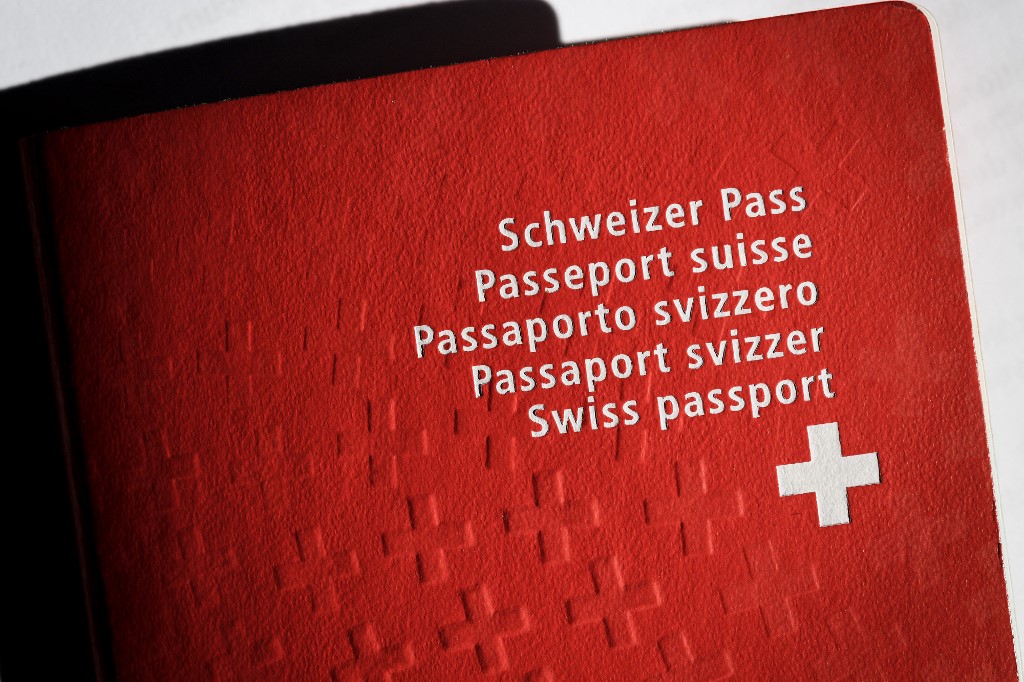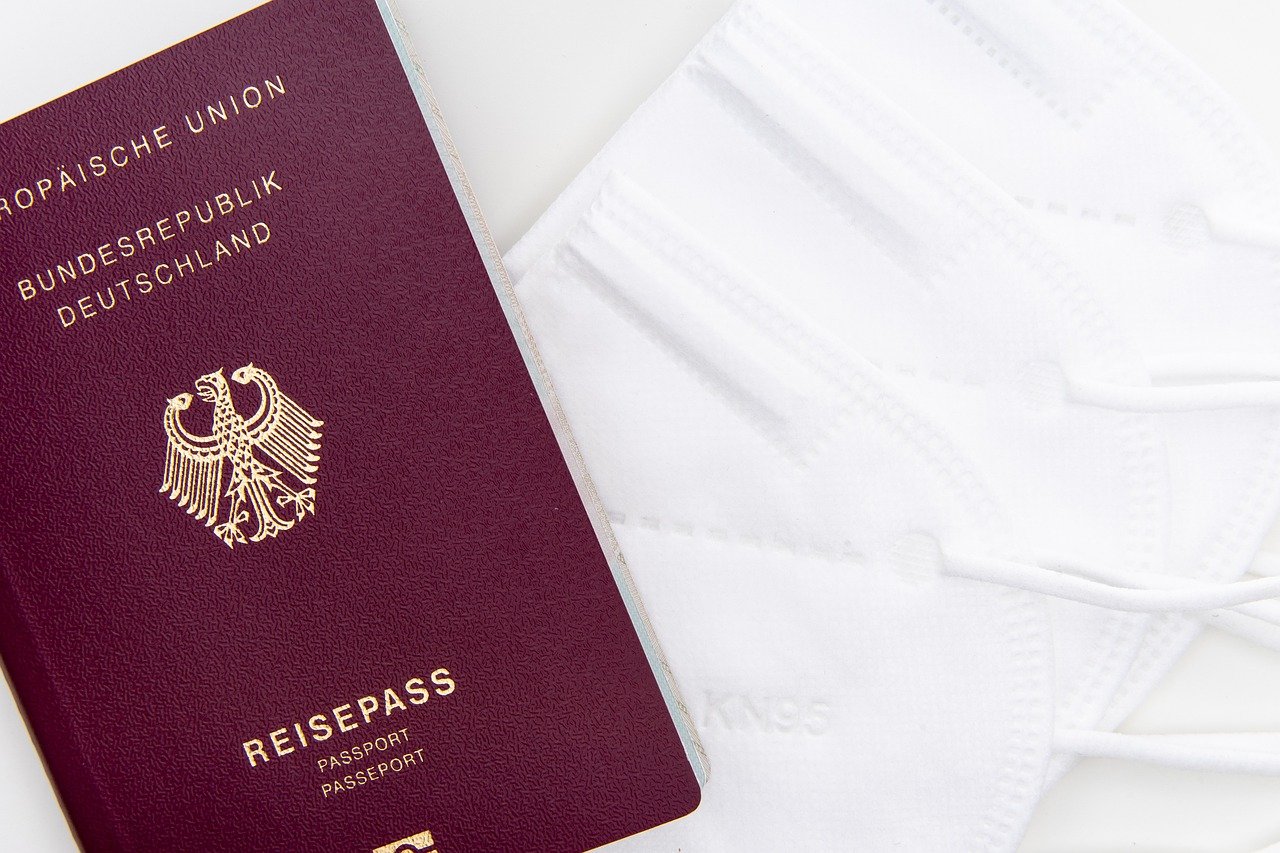How do the rules on dual citizenship in Switzerland compare to the rest of Europe?

When it comes to meeting all the requirements and criteria for citizenship, Switzerland's are among the toughest in Europe. But holding multiple nationalities is permitted. We look at how the rules compare.
Gaining citizenship in another state is not a walk in the park. Wherever you're applying, there are several bureaucratic headaches, varying residency rules and exceptions.
Meanwhile, some countries can require people to give up their nationality of origin as a result of the process.
Switzerland
In many countries, such as Switzerland, France, Italy and Sweden, as well as Belgium, Ireland and the UK, holding more than one nationality is permitted.
Swiss law has allowed multiple citizenship without any restrictions since 1992, provided the other state or states in question allow it.
In Switzerland, about 20 percent of the permanent resident population aged 15 or over has two passports - a Swiss one in addition to a foreign one.
However, it's worth noting that getting citizenship in Switzerland is known to be a tough process. Meeting all the requirements - such as length of residency, language skills, and integration - is just half the battle on the road towards a Swiss passport.
Even if all the criteria is fulfilled, your application has to be approved at the cantonal, municipal, and federal levels as part of Switzerland’s political and direct democracy structure. That can pose difficulties for international residents trying to settle in Switzerland.
In general for citizenship through naturalisation, you have to have lived legally in Switzerland for at least 10 years and hold a permanent resident permit (C permit).
You also have to have lived in your canton for a certain length of time, with each canton having its own rules on this.
READ ALSO: How to apply for Swiss citizenship

A Swiss biometric passport is photographed in Lausanne on September 15, 2018. (Photo by Fabrice COFFRINI / AFP)
Where else is dual citizenship permitted?
In neighbouring France the residency requirement for naturalisation is generally five years, showing integration into the French way of life and knowledge of the French language.
In Italy it is possible to apply for citizenship after 10 years of residence, or four for EU citizens and two for a resident married to an Italian citizen. A language test is also required.
Sweden is one of the few countries where language or civics tests are not needed, although the government plans to change this. The general rule is five consecutive years of residence, with absences of more than six weeks during a year subtracted from the total. People married, in a registered partnership or cohabiting partners with a Swedish citizen can apply after three years.
The Swedish government has launched an inquiry to extend the residence requirement to eight years. It's not yet clear if there will be exceptions for partners of Swedish citizens.
Denmark has one of the strictest citizenship laws. Naturalisation requires an extra waiting period of two years after obtaining a permanent residence permit, which usually takes eight years. There is also a citizenship test.
Denmark allows dual citizenship after the law changed in 2015. Former Danes who lost their citizenship by acquiring a foreign one before September 1st 2015 can reacquire it by making a declaration to the Ministry of Immigration and Integration by June 30th 2026.
After a recent change in regulations, dual citizenship is also allowed in Norway. Those who lost their Norwegian citizenship before 2020 can reacquire it by submitting a notification of citizenship.
There are stricter rules, however, in the Netherlands. Foreign nationals acquiring Dutch citizenship, or Dutch nationals acquiring a foreign one, need to give up their citizenship of origin, except in some specific circumstances – for example, for those acquiring their spouse’s or partner’s citizenship or those holding an asylum residence permit.
Restrictions also exist in many Eastern European countries.
READ ALSO: Cows' hair and swimming lessons - the 8 weirdest Swiss citizenship exam questions
Where is dual citizenship is generally not allowed?
At present, only EU and Swiss nationals can retain their citizenship of origin when they naturalise as German - with a few specific carve-outs. For example, children with a German parent acquire German citizenship at birth and can keep dual citizenship permanently. In addition, refugees, people from countries that forbid the renunciation of citizenship and those who were stripped of citizenship during the Nazi period can also retain both passports.
German citizens who wish to naturalise in another country and keep German nationality can apply for a retention permit. In this case they will have to provide evidence of “continuing ties with Germany” and of “substantial reasons” for acquiring the other nationality.
However, an overhaul of these rules is on the horizon, with the German government promising that a "modern citizenship law" will come into force in April 2024.

A German passport. Photo: Markus Winkler from Pixabay
READ ALSO: TIMELINE: When will Germany push through the new dual citizenship law?
This will allow the holding of multiple nationalities and will also see the current residence requirements reduced.
Instead of the current eight years, just five years of residence in Germany will be required in most cases. For people who can demonstrate exceptional integration - including C1 German skills, volunteer work or impressive achievements in their career - citizenship will be attainable after just three years.
“In principle, anyone who acquires Austrian citizenship by conferral loses their foreign citizenship,” says the Austrian government website. This also applies to Austrian citizens who acquire a foreign citizenship.
Austria only waives the requirement to renounce previous citizenship if this is in the special interest of the state on the basis of “extraordinary achievements” in the past or expected in the future.
Austrians at birth can maintain citizenship if they apply to do so before acquiring another nationality and if this is justified by “special circumstances”, for instance if losing it would have “a severe detrimental impact on their ability to work” or, in the case of minors, if this is in their best interest.
Children with at least one Austrian parent are Austrian and can have dual citizenship. “The child does not have to decide on their (sole) nationality upon reaching the age of majority. However, the other state involved may require them to make such a decision,” the website adds.
Thanks to a recent law, Austrians who left the country before 15 May 1955 because of persecutions by the Nazi regime, and their descendants, can have their citizenship restored and retain any other citizenship they have since acquired.
As a general rule, people naturalising as Spanish citizens have to renounce their previous nationality. This is not required of nationals of Latin American countries, Andorra, the Philippines, Equatorial Guinea, Portugal, France or Sephardic Jews of Spanish origin (the deadline for the latter to apply for citizenship via this route expired in 2021).
For citizens from these countries the residency requirement to apply for naturalisation is 2 years, but for other nationalities it is 10 years. It is otherwise one year for people married to a Spanish national or 5 years for refugees.
READ ALSO: Do you really have to give up your original nationality if you become Spanish?
Legally speaking, anyone else obtaining Spanish citizenship such as Britons or Americans would need to renounce their original nationality.
The last step in applying for Spanish nationality includes going before a judge to swear allegiance to the Spanish constitution. During this time, they will also ask you to renounce your original nationality.
However, the crucial point is that you will not be requested to physically hand over your other passport, so it will remain in your possession.
This article was partly produced by the team at Europe Street news.
Comments
See Also
Gaining citizenship in another state is not a walk in the park. Wherever you're applying, there are several bureaucratic headaches, varying residency rules and exceptions.
Meanwhile, some countries can require people to give up their nationality of origin as a result of the process.
Switzerland
In many countries, such as Switzerland, France, Italy and Sweden, as well as Belgium, Ireland and the UK, holding more than one nationality is permitted.
Swiss law has allowed multiple citizenship without any restrictions since 1992, provided the other state or states in question allow it.
In Switzerland, about 20 percent of the permanent resident population aged 15 or over has two passports - a Swiss one in addition to a foreign one.
However, it's worth noting that getting citizenship in Switzerland is known to be a tough process. Meeting all the requirements - such as length of residency, language skills, and integration - is just half the battle on the road towards a Swiss passport.
Even if all the criteria is fulfilled, your application has to be approved at the cantonal, municipal, and federal levels as part of Switzerland’s political and direct democracy structure. That can pose difficulties for international residents trying to settle in Switzerland.
In general for citizenship through naturalisation, you have to have lived legally in Switzerland for at least 10 years and hold a permanent resident permit (C permit).
You also have to have lived in your canton for a certain length of time, with each canton having its own rules on this.
READ ALSO: How to apply for Swiss citizenship

Where else is dual citizenship permitted?
In neighbouring France the residency requirement for naturalisation is generally five years, showing integration into the French way of life and knowledge of the French language.
In Italy it is possible to apply for citizenship after 10 years of residence, or four for EU citizens and two for a resident married to an Italian citizen. A language test is also required.
Sweden is one of the few countries where language or civics tests are not needed, although the government plans to change this. The general rule is five consecutive years of residence, with absences of more than six weeks during a year subtracted from the total. People married, in a registered partnership or cohabiting partners with a Swedish citizen can apply after three years.
The Swedish government has launched an inquiry to extend the residence requirement to eight years. It's not yet clear if there will be exceptions for partners of Swedish citizens.
Denmark has one of the strictest citizenship laws. Naturalisation requires an extra waiting period of two years after obtaining a permanent residence permit, which usually takes eight years. There is also a citizenship test.
Denmark allows dual citizenship after the law changed in 2015. Former Danes who lost their citizenship by acquiring a foreign one before September 1st 2015 can reacquire it by making a declaration to the Ministry of Immigration and Integration by June 30th 2026.
After a recent change in regulations, dual citizenship is also allowed in Norway. Those who lost their Norwegian citizenship before 2020 can reacquire it by submitting a notification of citizenship.
There are stricter rules, however, in the Netherlands. Foreign nationals acquiring Dutch citizenship, or Dutch nationals acquiring a foreign one, need to give up their citizenship of origin, except in some specific circumstances – for example, for those acquiring their spouse’s or partner’s citizenship or those holding an asylum residence permit.
Restrictions also exist in many Eastern European countries.
READ ALSO: Cows' hair and swimming lessons - the 8 weirdest Swiss citizenship exam questions
Where is dual citizenship is generally not allowed?
At present, only EU and Swiss nationals can retain their citizenship of origin when they naturalise as German - with a few specific carve-outs. For example, children with a German parent acquire German citizenship at birth and can keep dual citizenship permanently. In addition, refugees, people from countries that forbid the renunciation of citizenship and those who were stripped of citizenship during the Nazi period can also retain both passports.
German citizens who wish to naturalise in another country and keep German nationality can apply for a retention permit. In this case they will have to provide evidence of “continuing ties with Germany” and of “substantial reasons” for acquiring the other nationality.
However, an overhaul of these rules is on the horizon, with the German government promising that a "modern citizenship law" will come into force in April 2024.

READ ALSO: TIMELINE: When will Germany push through the new dual citizenship law?
This will allow the holding of multiple nationalities and will also see the current residence requirements reduced.
Instead of the current eight years, just five years of residence in Germany will be required in most cases. For people who can demonstrate exceptional integration - including C1 German skills, volunteer work or impressive achievements in their career - citizenship will be attainable after just three years.
“In principle, anyone who acquires Austrian citizenship by conferral loses their foreign citizenship,” says the Austrian government website. This also applies to Austrian citizens who acquire a foreign citizenship.
Austria only waives the requirement to renounce previous citizenship if this is in the special interest of the state on the basis of “extraordinary achievements” in the past or expected in the future.
Austrians at birth can maintain citizenship if they apply to do so before acquiring another nationality and if this is justified by “special circumstances”, for instance if losing it would have “a severe detrimental impact on their ability to work” or, in the case of minors, if this is in their best interest.
Children with at least one Austrian parent are Austrian and can have dual citizenship. “The child does not have to decide on their (sole) nationality upon reaching the age of majority. However, the other state involved may require them to make such a decision,” the website adds.
Thanks to a recent law, Austrians who left the country before 15 May 1955 because of persecutions by the Nazi regime, and their descendants, can have their citizenship restored and retain any other citizenship they have since acquired.
As a general rule, people naturalising as Spanish citizens have to renounce their previous nationality. This is not required of nationals of Latin American countries, Andorra, the Philippines, Equatorial Guinea, Portugal, France or Sephardic Jews of Spanish origin (the deadline for the latter to apply for citizenship via this route expired in 2021).
For citizens from these countries the residency requirement to apply for naturalisation is 2 years, but for other nationalities it is 10 years. It is otherwise one year for people married to a Spanish national or 5 years for refugees.
READ ALSO: Do you really have to give up your original nationality if you become Spanish?
Legally speaking, anyone else obtaining Spanish citizenship such as Britons or Americans would need to renounce their original nationality.
The last step in applying for Spanish nationality includes going before a judge to swear allegiance to the Spanish constitution. During this time, they will also ask you to renounce your original nationality.
However, the crucial point is that you will not be requested to physically hand over your other passport, so it will remain in your possession.
This article was partly produced by the team at Europe Street news.
Join the conversation in our comments section below. Share your own views and experience and if you have a question or suggestion for our journalists then email us at [email protected].
Please keep comments civil, constructive and on topic – and make sure to read our terms of use before getting involved.
Please log in here to leave a comment.